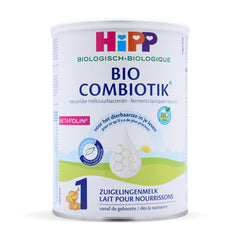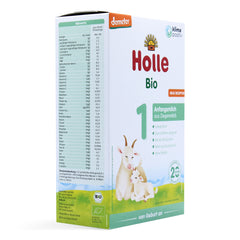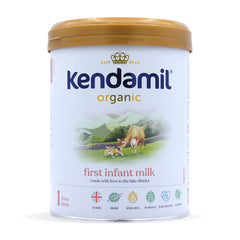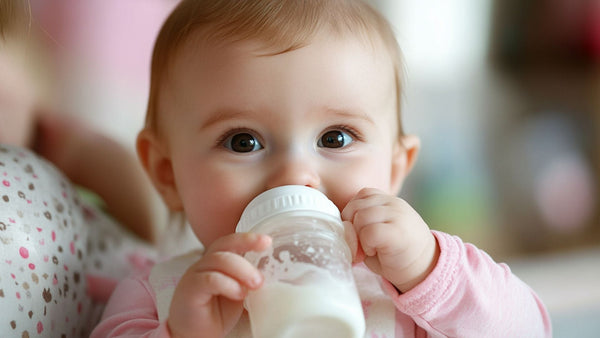Heavy Metals in Baby Formula: Separating Facts from Myths
You're scrolling through your phone at 2 AM, feeding your baby, when a headline makes your blood run cold: "Toxic Heavy Metals Found in Popular Baby Formulas." Your hands start trembling as you look down at the formula container you've been using for months. The same questions that haunt millions of parents worldwide now consume your thoughts: does baby food have heavy metals that could harm your precious child?
The panic sets in as you frantically search for answers. Every parent's worst nightmare is unknowingly poisoning their baby with something they believed was safe and nutritious. You remember reading about developmental delays, learning disabilities, and other long-term effects linked to heavy metal exposure in infants. Now you're wondering if that baby food with high levels of metal sitting in your pantry has been slowly damaging your child's developing brain.
The guilt is overwhelming. You've been so careful about everything else — organic clothes, filtered water, toxin-free toys — but what if the very nutrition you've been providing contains dangerous levels of arsenic, lead, or mercury? The fear of irreversible damage keeps you awake at night, questioning every feeding decision you've made.
What Are Heavy Metals and How Do They Get Into Baby Formula?
At Organic Life Start, we offer high-quality European organic formulas that are created according to strict certifications and standards and are beneficial for babies. However, there is an important issue today regarding heavy metal content in baby formula. Society is increasingly interested in understanding what metals are present in formulas and how they get there. Parents wonder "Why are there heavy metals in baby formula?" and what threats they pose to their children.
Heavy metals are chemical elements that can be found in baby formula in trace amounts. Even small doses can potentially cause health problems for sensitive children. The most commonly found metals in formulas include lead, arsenic, cadmium, and mercury. These metals can pose serious threats to brain development and immune system function. Here are the main ways metals enter formula:
-
Environmental contamination. Metals most often enter through contaminated soil and water sources that affect plants used in formula production. During processing, these metals can potentially harm children if levels become too high.
-
Industrial pollution. Metals enter the environment through air pollution and industrial emissions that contaminate agricultural areas. This widespread contamination affects crops used in formula manufacturing.
-
Agricultural practices. Heavy metals can be introduced through fertilizers and pesticides used in farming. They can also enter formulas through manufacturing equipment and processing facilities during production.
Common Heavy Metals Found in Baby Formula and Their Effects
High-quality nutrition for babies is essential for their healthy development. Our selection of European brands helps support proper eating habits in children. Today, various formulas are available, some of which may contain trace amounts of heavy metals. Parents often ask "Does baby formula contain metal?" The answer requires careful consideration. Some formulas do contain metals that can be concerning for baby health. Here are common metals and their key characteristics:
-
Lead (Pb). Lead often enters baby formula through contaminated soil, water, and equipment. Lead significantly impacts cognitive development and brain function in children. Even low doses can be dangerous due to the vulnerability of developing nervous systems.
-
Arsenic (As). Arsenic has a cumulative effect and enters through contaminated water and pesticide residues. Small doses can greatly impact a child's nervous system over time. Extended exposure can lead to problems with heart function and immune system development.
-
Cadmium (Cd). Cadmium enters baby formula through soil contamination and phosphate fertilizers, primarily affecting kidney function. Children may suffer from bone tissue problems and liver complications with prolonged exposure.
-
Mercury (Hg). This dangerous metal enters through air and water pollution sources. Mercury affects brain development and can contribute to vision and hearing impairments in infants with significant exposure.
What Baby Foods and Formulas Are More Likely to Contain Heavy Metals?

It's important for parents to understand which baby foods have heavy metals. According to recent research and data, specific formulas have been found to contain concerning levels of heavy metals. These metals can significantly impact child health and immune system development. Heavy metals are dangerous and can cause serious problems even in small doses. Here's what recent studies have found:
-
Arsenic contamination. Scientific studies have shown that arsenic has been detected in multiple formulas, which can be dangerous for children. Arsenic exposure can cause cardiovascular problems in babies, creating serious concerns for parents.
-
Lead detection. Heavy metals found in baby food can have serious consequences during long-term exposure. Studies have shown that lead has been detected in numerous formulas that pose risks to children. Lead has been found in baby foods including purees, sauces, and cereals designed for infants.
-
Cadmium and mercury presence. Cadmium and mercury have been detected in multiple formulas manufactured at various facilities. These dangerous heavy metals can contribute to poor child health and deterioration of overall condition. Some products may carry higher risks and potentially cause adverse reactions.
How to Choose Baby Formula with Low or No Heavy Metals
It's important for parents to understand that baby food doesn't have heavy metals. There are many different formulas available worldwide for children. High-quality formulas with excellent compositions typically have proper certifications and international recognition. Premium formulas are specifically created for babies from birth and contain essential nutrients. Baby formulas with low or no heavy metal content are the best options for child health. Here are some excellent options from Organic Life Start:
-
HiPP Formula. Today, it's important for parents to consider world-renowned European brands. HiPP Dutch Stage 1 Formula is an organic formula designed for babies from birth. Parents can use this formula with confidence, as it contains minimal heavy metal content. The formula includes probiotics, prebiotics, and contains no added sugar. This popular formula represents an excellent choice for child health.
-
Holle Formula. Holle Goat Milk Formula Stage 1 is an excellent choice for babies up to six months. The formula contains essential nutrients and is completely GMO-free. Baby food that doesn't have heavy metals or added sugar, making it organic and safe for newborns.
-
Kendamil Formula. Kendamil Organic Stage 1 Formula offers an excellent choice with natural ingredients. This pure formula is designed for children from 0 to 6 months of age. The formula is completely natural and contains no soy, sugar, or harmful chemicals.
We specialize in helping families find the safest European formulas for their babies. Our team understands the importance of low heavy metal content and can guide you toward the healthiest choices. Contact us for detailed information about high-quality formulas that prioritize your baby's safety.
Myths About Heavy Metals in Baby Formula — What You Should Know
Heavy metals in formulas can be dangerous to baby health when present in significant amounts. However, testing and regulation are mandatory for monitoring heavy metal presence. Testing includes screening samples for lead, arsenic, cadmium, and mercury. Special certifications help establish compliance with government standards. Here are key myths about heavy metals in baby formula:
-
Myth: Small amounts of metals are completely safe. Even minimal amounts of heavy metals can cause problems in sensitive infants. Lead can accumulate in the body over time and potentially lead to serious health issues.
-
Myth: Formulas aren't properly tested. Government bodies like the FDA and EFSA require comprehensive testing of all formulas. Regular testing for toxic substances in baby formula is mandatory and ongoing.
-
Myth: Manufacturers hide metal content. Manufacturers cannot hide heavy metal amounts according to modern regulatory laws. Company transparency is mandatory to comply with strict standards and safety requirements.
-
Myth: All formulas are equally dangerous. While baby foods with heavy metals 2025 levels can be harmful, many formulas meet strict government safety standards. Quality formulas contain minimal amounts below established safe limits that don't pose significant risks.
-
Myth: Organic products are completely metal-free. Organic products can also contain trace amounts of metals from environmental sources like water and soil. Heavy metals can accumulate in soil naturally and may be present in organic production processes.
Steps the Baby Formula Industry and Regulators Are Taking to Ensure Safety
The baby formula industry and regulators are taking comprehensive steps to ensure infant safety. There are improvements in sourcing and processing of raw materials used in production. Companies are implementing environmentally friendly practices for soil purification and contamination prevention. Ingredient standardization helps reduce reliance on high-risk ingredients like rice.
Manufacturers are improving recipes and changing ingredients to more environmentally friendly and healthier alternatives. Advanced testing procedures in production facilities are equally important. Multi-level testing includes comprehensive screening of products for heavy metal presence throughout the manufacturing process.
Government regulation and consumer protection require proper certifications and oversight. According to FDA and EFSA requirements, improved monitoring of baby formula is taking place. Programs are being implemented to reduce heavy metal content significantly. There are restrictions on sourcing materials from regions known for contamination.
These safety measures help reduce heavy metal exposure and improve baby health outcomes. Parents can expect better results when feeding their children safer formulas. The risk of toxin accumulation and related diseases is substantially reduced through these comprehensive safety measures.
Organic Life Start is committed to providing accurate, reliable, and trustworthy information to parents and caregivers. We carefully choose credible sources and follow a meticulous fact-checking process to uphold the highest standards in infant nutrition and parenting advice. To learn more about our dedication to accuracy, please explore our editorial guidelines.
Link To Sources










